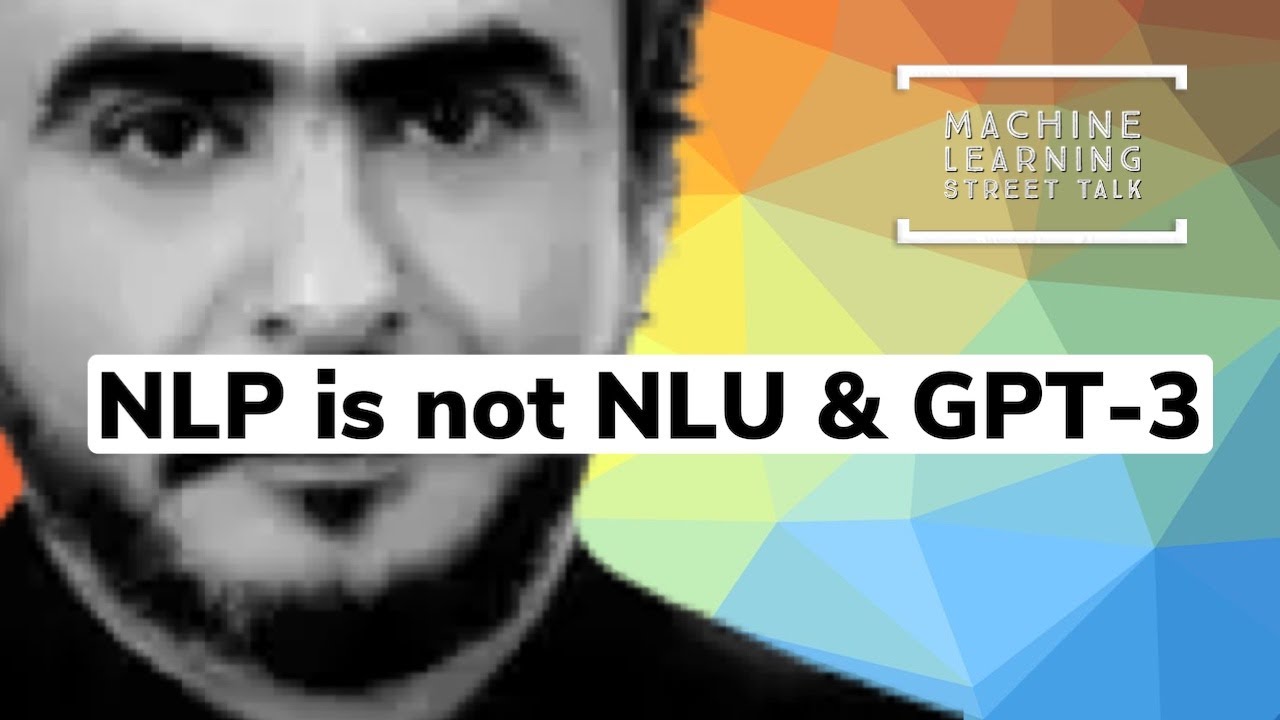Machine Learning Street Talk
#machinelearning
This week Dr. Tim Scarfe, Dr. Keith Duggar and Yannic Kilcher speak with veteran NLU expert Dr. Walid Saba.
Walid is an old-school AI expert. He is a polymath, a neuroscientist, psychologist, linguist, philosopher, statistician, and logician. He thinks the missing information problem and lack of a typed ontology is the key issue with NLU, not sample efficiency or generalisation. He is a big critic of the deep learning movement and BERTology. We also cover GPT-3 in some detail in today’s session, covering Luciano Floridi’s recent article “GPT‑3: Its Nature, Scope, Limits, and Consequences” and a commentary on the incredible power of GPT-3 to perform tasks with just a few examples including the Yann LeCun commentary on Facebook and Hackernews.
00:00:00 Walid intro
00:05:03 Knowledge acquisition bottleneck
00:06:11 Language is ambiguous
00:07:41 Language is not learned
00:08:32 Language is a formal language
00:08:55 Learning from data doesn’t work
00:14:01 Intelligence
00:15:07 Lack of domain knowledge these days
00:16:37 Yannic Kilcher thuglife comment
00:17:57 Deep learning assault
00:20:07 The way we evaluate language models is flawed
00:20:47 Humans do type checking
00:23:02 Ontologic
00:25:48 Comments On GPT3
00:30:54 Yann lecun and reddit
00:33:57 Minds and machines – Luciano
00:35:55 Main show introduction
00:39:02 Walid introduces himself
00:40:20 science advances one funeral at a time
00:44:58 Deep learning obsession syndrome and inception
00:46:14 BERTology / empirical methods are not NLU
00:49:55 Pattern recognition vs domain reasoning, is the knowledge in the data
00:56:04 Natural language understanding is about decoding and not compression, it’s not learnable.
01:01:46 Intelligence is about not needing infinite amounts of time
01:04:23 We need an explicit ontological structure to understand anything
01:06:40 Ontological concepts
01:09:38 Word embeddings
01:12:20 There is power in structure
01:15:16 Language models are not trained on pronoun disambiguation and resolving scopes
01:17:33 The information is not in the data
01:19:03 Can we generate these rules on the fly? Rules or data?
01:20:39 The missing data problem is key
01:21:19 Problem with empirical methods and lecunn reference
01:22:45 Comparison with meatspace (brains)
01:28:16 The knowledge graph game, is knowledge constructed or discovered
01:29:41 How small can this ontology of the world be?
01:33:08 Walids taxonomy of understanding
01:38:49 The trend seems to be, less rules is better not the othe way around?
01:40:30 Testing the latest NLP models with entailment
01:42:25 Problems with the way we evaluate NLP
01:44:10 Winograd Schema challenge
01:45:56 All you need to know now is how to build neural networks, lack of rigour in ML research
01:50:47 Is everything learnable
01:53:02 How should we elevate language systems?
01:54:04 10 big problems in language (missing information)
01:55:59 Multiple inheritance is wrong
01:58:19 Language is ambiguous
02:01:14 How big would our world ontology need to be?
02:05:49 How to learn more about NLU
02:09:10 AlphaGo
02:11:06 Intelligence is about using reason to disambiguate
02:13:53 We have an internal type/constraint system / internal language module in brain
02:18:06 Relativity of knowledge and degrees of belief
Walid’s blog: https://medium.com/@ontologik
LinkedIn: https://www.linkedin.com/in/walidsaba/
